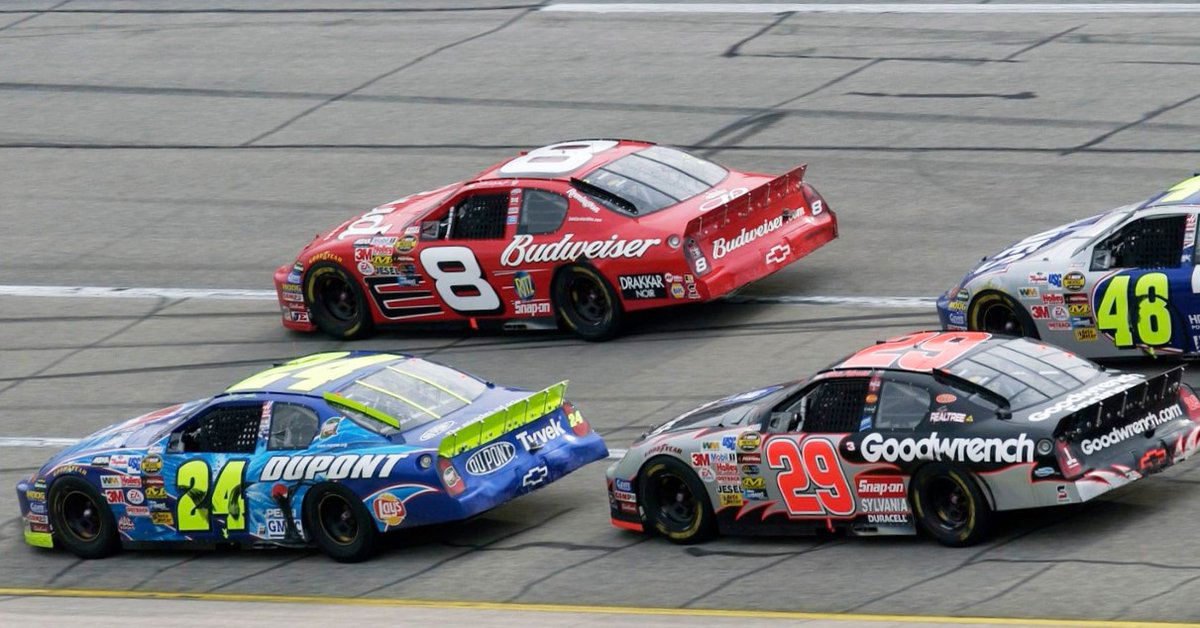
Imago
NASCAR Legends / X

Imago
NASCAR Legends / X
In 2025, frustration is mounting in the NASCAR Xfinity Series. Owners, drivers, and insiders say rising costs and a broken financial model are pushing teams out, like Our Motorsports, which shut down midseason. Lawsuits and public criticism have turned quiet concerns into a loud chorus of discontent. But one team owner has countered the crisis narrative.
Watch What’s Trending Now!
However, many within the sport have spoken out about the escalating costs, calling the current landscape unsustainable. Former driver and broadcaster Jeff Burton has described the cost curve as “too damn expensive,” noting that what once covered a full season now barely funds two races.
The Race Team Alliance has also warned for years that the business model offers “little to no chance of long-term stability” for most participants. These ongoing concerns have not been isolated incidents. Lawsuits from 23XI Racing and Front Row Motorsports in late 2024 challenged NASCAR’s charter and revenue distribution systems.
The case alleged that they left many operations financially unviable. While those cases target the Cup Series, the financial themes resonate across all divisions. In Xfinity, where posted race purses often hover around $1.65 million, complaints have grown louder about a model that fails to keep pace with travel, equipment, and staffing expenses.
NASCAR’s Xfinity pay structure revealed
Tommy Joe Martins, co-owner of Alpha Prime Racing, revealed on a recent podcast that NASCAR has altered its Xfinity payout structure for 2025. According to Martins, “We get paid, if you’re a full-time team, the exact same amount for every race you run in the schedule, whether that is Charlotte or Portland.” Daytona’s season opener, Mexico City, and the Phoenix championship race are notable exceptions.
Daytona 1 pays roughly double the standard purse. Martins framed this change as a move toward parity and budget predictability, replacing the old model where certain tracks paid significantly more than others due to market or travel considerations. “If you’re running all the races, it kind of levels itself out,” Martins explained, implying that the standardized payouts address some of the cost imbalance critics have highlighted.
Money flows different in the #NASCAR Xfinity Series than in the past.
Co-owner of @TeamAlphaPrime @TommyJoeMartins discussed some details of how the pay structure works in NASCAR’s second tier series.
Presenting partner: @MyPlaceHotels pic.twitter.com/GC4tSD0g5a
— Frontstretch (@Frontstretch) August 14, 2025
Martins’ remarks on the Frontstretch Happy Hour contrast sharply with the financial crisis claims circulating in recent months. He acknowledged that Daytona’s elevated purse is a major draw. Public records list the 2025 opener’s awards at $3.76 million. This is more than twice the $1.65 million baseline seen at many events. But he emphasized that the flat distribution reduces venue-to-venue revenue swings.
Martins argued the series has created a more consistent earning environment. This was done by eliminating the financial disparity between high-paying tracks like Texas and lower-paying stops such as Phoenix. This, he suggested, allows teams to budget more effectively across the season. It is a better alternative than relying on a few lucrative weekends to offset leaner ones.
The flattening of payouts may not erase the broader economic pressures facing Xfinity teams. However, it does signal NASCAR’s willingness to adjust the financial model. For owners like Martins, that shift offers a measure of stability in a volatile environment.
The coming seasons will reveal whether this structure can sustain mid-tier teams. If the cost escalation continues, more teams will be forced to exit, like Our Motorsports. With marquee events such as Daytona and Mexico City still offering premium incentives, NASCAR is balancing tradition with pragmatism. Still, the tension between rising expenses and sustainable rewards remains unresolved.
An unfinished NASCAR dream
Tommy Joe Martins was a longtime NASCAR Xfinity and Truck Series driver turned team co-owner. Recently, he shared a career setback that still stings. This was his failed bid for a NASCAR Cup Series license in 2023. Officials denied the application, citing an insufficient Cup resume. The decision ended his dream of racing at the top level. It highlighted how steep the climb remains, even for veteran drivers. Despite his achievements, this setback has stayed with him over the years.
The rejection came amid growing barriers to Cup Series entry. Sponsorship hurdles, stricter approval rules, and demands for standout lower-series results shut the door on many mid-tier drivers. Martins’ story puts a face to those struggles and sets the stage for the frustrations he revealed next. In an interview, Martins said officials told him he lacked enough success in the lower series.
He explained, “I look at other small-time guys that have been in underfunded rides that have done a great job at that level, and I consider them peers of mine, so that was a tough thing to hear. It will always really bother me.” For him, the denial felt personal. It was the final blow after years of battling in underfunded cars and putting in hours of work.
Martins also criticized the false hope of sponsorship talks. He had meetings with high-up people at companies that didn’t ever result in anything. He spoke about how hearing the word “maybe” was a sure shot “no”. Martins spoke about a tendency to latch on to that word, only to later realize that he was being strung along.
Now 38, he admitted a harsh truth. Realistically, gaining entry into the Cup Series at this age would be next to impossible. His experience highlights a deeper question for NASCAR. Will talent ever matter more than money and connections?



